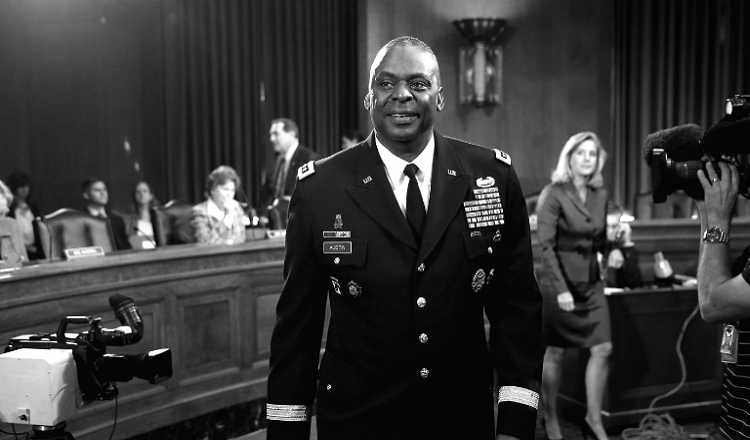From Pearl Harbor to 911 American Defense Victories
The United States of America has experienced both successes and losses when defending their country. The focus of this piece, however, will be on some of the most important defensive triumphs in American history. These achievements influenced American defense strategy and policy for decades to come, from the infamous attack on Pearl Harbor to the horrific 9/11 terrorist attacks.
Why is it crucial to research and comprehend these defensive triumphs? Well, to begin with, they offer insightful information on the nation’s defense system’s advantages and disadvantages. We can gain crucial lessons about military tactics, strategy, and policy that might be used in upcoming battles by looking at how these triumphs were attained. These triumphs also serve as a reminder of the bravery and selflessness displayed by the men and women who have served in the nation’s military services, as well as the value of honoring and assisting those who protect our nation.
Without further ado, let’s examine some of America’s most notable defensive wins and how they influenced the country’s defense strategy and policy. We may better comprehend what it takes to defend our country and guarantee its safety and security for future generations by looking at these achievements through that lens.
Attack on Pearl Harbor (1941)
The Japanese attack on Pearl Harbor on December 7, 1941, was a tragic episode in American history. 2,403 Americans lost their lives in the surprise attack on the US naval station in Hawaii, which also destroyed a large number of ships and planes. It was a turning point that drove the US into World War II and influenced its defense policy for many years.
In reaction to the attack, the US declared war on Japan and sided with the Allies in World War II. In order to confront Japan’s aggression, the US started a significant military campaign to rebuild its naval force and set up military sites in the Pacific. The internment of Japanese Americans was one of the measures President Franklin D. Roosevelt took to stop sabotage and espionage on US soil.
The necessity for improved intelligence and readiness in the face of possible threats was one of the most crucial lessons gained from the attack. The US understood that the attack had caught it off guard and that its defense system needed to be improved. Because of its emphasis on intelligence collecting, early warning systems, and the quick mobilization of military assets in response to threats, the Pearl Harbor assault had an impact on American defense policy. The knowledge gained from this attack might be useful in later wars like the Gulf War and the War on Terror.
1944’s D-Day Invasion
On June 6, 1944, the D-Day invasion marked a crucial turning point in World War II. The Allied liberation of Western Europe from Nazi Germany’s rule began with the assault of Normandy, France. The invasion’s success was important to the eventual Allied triumph and influenced American defense strategies for many years.
In 1943, preparations for the invasion got under way, and a considerable effort was made to prepare the troops for the amphibious assault. To overcome the obstacles of the invasion, it was necessary to coordinate the actions of air, sea, and land forces as well as to develop new technologies and strategies. The Allies were able to overcome enormous challenges and establish a foothold in France despite having to contend with strong defenses.
A number of significant advancements were made possible by the D-Day assault, including the creation of specialized landing craft and amphibious vehicles as well as new strategies for aerial operations. It also demonstrated the value of acquiring intelligence and the use of deception to trick opposing forces. The invasion’s lessons were crucial in forming American defense strategies in subsequent conflicts, and they still have an impact on military planning today.
Korean Conflict (1950–1953)
The Korean War, which broke out between North and South Korea and lasted from 1950 to 1953, had a significant impact on both the region and the entire world. North Korean armies supported by the Soviet Union and China invaded South Korea, starting the war. The Battle of Inchon, the Chosin Reservoir campaign, and the Armistice discussions were among the major conflicts fought throughout the conflict.
In order to aid South Korea in the battle, the United States sent military personnel and made significant financial and material contributions. General Douglas MacArthur oversaw the UN forces in Korea, which was where the US played a vital part in the conflict. With the signing of the Armistice Agreement in 1953, the war came to a deadlock.
The significance of maintaining a robust military presence and alliance structures in the face of aggressive communist expansionism was one crucial lesson from the Korean War. The conflict also served as a reminder of the importance of carefully weighing the benefits and drawbacks of intervening in other countries’ crises. These lessons had an impact on American defense strategy and policy, leading to the formation of military alliances like NATO and the creation of concepts like containment and deterrence.
(1990–1991) Gulf War
The Gulf War was a battle between Iraq and a coalition of countries led by the United States that lasted from 1990 to 1991. Iraq’s invasion of Kuwait, which put regional stability and the world’s oil supplies in danger, ignited the conflict. The use of force to drive Iraqi forces out of Kuwait was sanctioned by the world community, which denounced Iraq’s actions.
With the deployment of more than 500,000 troops and command of the coalition’s military operations, the United States played a significant role in the Gulf War. Significant airstrikes and ground operations took place during the battle, and the coalition troops ultimately emerged victorious. Iraq was compelled to leave Kuwait and consent to disarmament steps.
The Gulf War brought to light the value of military innovation and technology in contemporary conflict. It also showed how important coalition-building and international collaboration are in combating challenges on a global scale. The conflict also brought to light the difficulties of post-conflict stabilization and reconstruction initiatives, which have since come to be a major emphasis of American defense strategy.
Afghanistan War (2001–2021)
From 2001 until 2021, there was a war in Afghanistan as a result of the 9/11 terrorist attacks on the United States. The terrorist organization Al-Qaeda, which had its headquarters in Afghanistan and was shielded by the Taliban government, was responsible for the attacks. In order to topple the Taliban and dismantle Al-Qaeda’s terrorist infrastructure, a coalition led by the US launched a military campaign.
The US and its allies sent tens of thousands of troops to the area during the Afghanistan War, which entailed major ground operations and airstrikes. The insurgency and guerilla tactics used by the Taliban throughout the battle, as well as the difficulty of stabilizing the nation after the conflict, were notable problems.
The struggle in Afghanistan brought to light the value of intelligence and counterterrorism initiatives as well as the difficulties in putting down insurgencies and establishing stable communities in war zones. A proper departure strategy and strategic preparation are essential components of military interventions, as the conflict also showed. As the US attempts to strike a balance between concerns about national security and the expenses and drawbacks of military involvement, these lessons may have an impact on American defense strategy in the future.
Conclusion
The Pearl Harbor attack, the invasion of Normandy on D-Day, the Korean War, the Persian Gulf War, and the War in Afghanistan have all been covered in this article. All of these incidents have had a substantial impact on American defense strategy and policy, and they have also taught us valuable lessons about how to conduct military operations in the future.
The D-Day assault highlighted the need of creativity and strategic planning, while the Pearl Harbor attack illustrated the need for readiness and intelligence gathering. While the Gulf War stressed the value of international cooperation and cutting-edge military equipment, the Korean War illustrated the difficulties of engaging in asymmetric warfare and aiding allies. The Afghan War served as a lesson in the importance of counterterrorism initiatives and strategic planning in tense situations.
These realizations and lessons will continue to influence future American defense strategy and policy. It will be crucial to continue to be watchful, flexible, and aggressive in addressing risks and difficulties as they change. American defense can continue to protect national security and improve international stability by taking lessons from the past.
Read More You May Like:














Post Comment